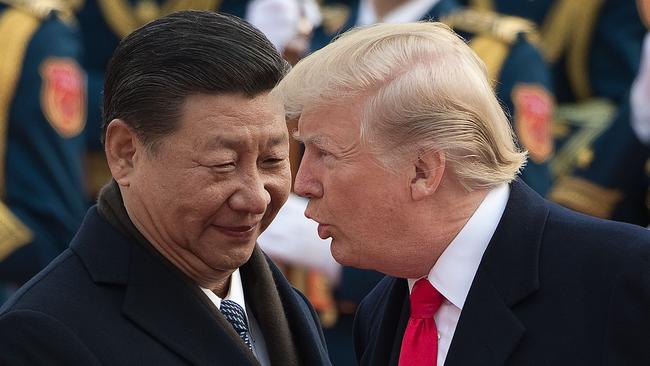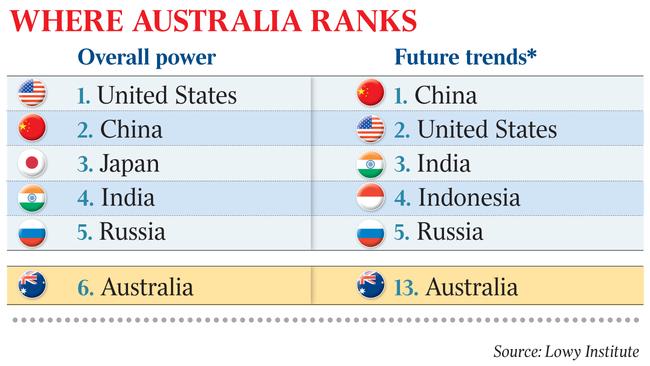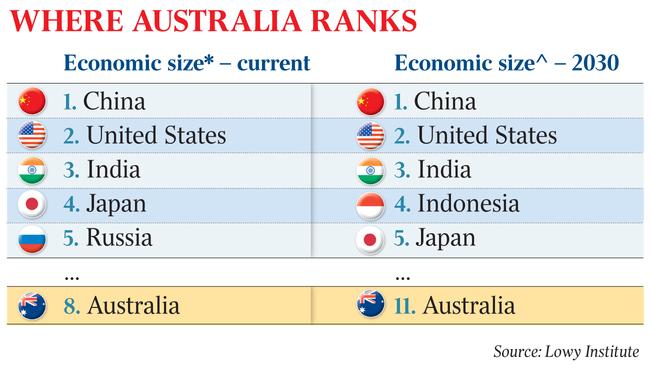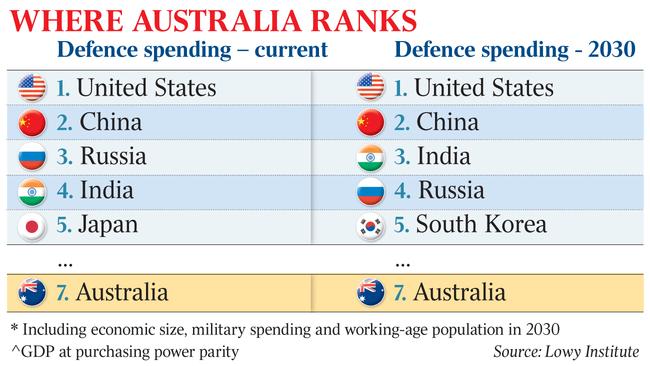Australia sixth in Lowy Institute’s power rankings
Australia sixth in an index of power among Asia-Pacific nations in which the US only just managed to beat China.

China is likely to overtake the USA as the most powerful nation in the Asia-Pacific by 2030, and Australia’s influence in the region is also predicted to wane over the next decade, according to a new power index launched by the Lowy Institute.
The interactive online index, which was unveiled at the Asia Society in New York this morning (AEST), measures power across 25 countries in the Asia-Pacific region. The eight broad categories encompass military might, economic resources, future potential, diplomatic and cultural clout, alliances, trade and resilience.

The US is about 10 points ahead of China, with Japan coming in at number three, India fourth, Russia at fifth and Australia sixth.
“The United States is still the top dog but China is closing fast,” said Michael Fullilove, Executive Director of the Lowy Institute.
“Unless something changes drastically you would expect China to overtake the US in the next 10 or 15 years on the index.

“Donald Trump is a sceptic of the very institutions that currently enable the United States to maintain its edge over China — its alliance network ... that China must surely envy.”
While Australia’s military capability only ranked ninth in the Asia-Pacific our defence networks — or partnerships with other militaries which multiply our military power — ranked second. According to the Lowy analysis, the country completed 262 joint military training exercises with other countries in the power index between 2012 and 2016.
“I think there is a persistent strain of self doubt in the Australian character where we constantly doubt ourselves and we constantly wonder whether anyone takes us seriously and whether we can really have an influence,” Mr Fullilove said.

“I think the message out of this index is Australia does well because we have strong institutions, we have fortunate geography we have an effective diplomatic service and defence force, we have a strong economy and we can actually choose to influence the balance of power in Asia.”
But the study also finds that Australia could slip to 13th position on the index by 2030, on the basis of future trends including economic size, military spending and working-age population.

The Asia-Pacific region is now seen by policy makers as the most important as it is the only part of the world where America goes head to head with a real competitor in China.
Despite dominating world headlines, North Korea ranked only 17th on the index.
“If you’re just following the news or Twitter and you know that Kim Jong-un has muscled his way into a summit meeting with the president of the United States you wouldn’t expect North Korea to be so low,” Mr Fullilove said.
“But when you think about it, North Korea is an asymmetric power and all its strength is in one measure (its military capability).”





